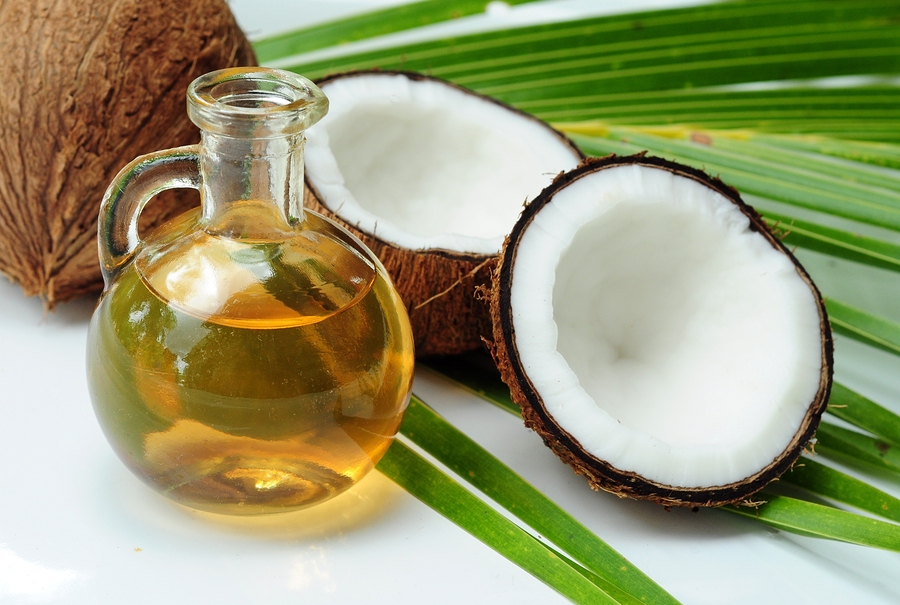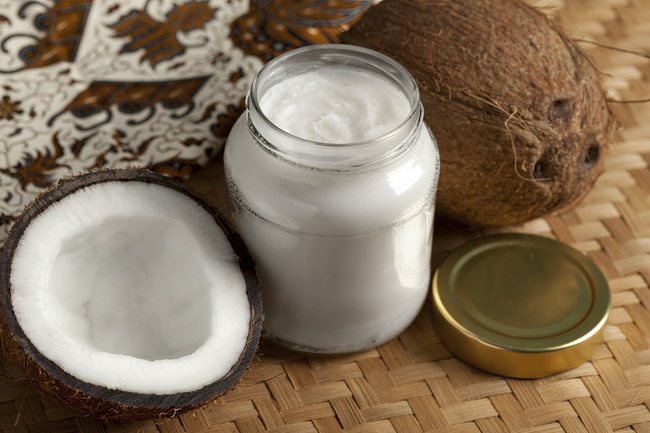- Make It Yourself Lavender Heart-Shaped Bath Bombs!
- 20 Things You Never Knew About “Down There”
- 12 Best Foods For Those Suffering From Arthritis Pain
- 12 Personal Hygiene Mistakes Almost Everyone Makes (Mom Never Told You About #4!)
- 15 Medicinal Plants And Herbs From The Cherokee People
- 12 Mind-Blowing Benefits Of Drinking Coconut Water During Pregnancy
- 12 Outstanding Winter Foods That Won’t Fatten You Up Like A Christmas Turkey
The Magic Of Coconut Oil

Photo credit: bigstock.com
Coconuts are a versatile food and can be used for their water, their fleshy interior, or for making oil — which this article will focus on. Coconuts in general, but particularly coconut oil, have become one of the latest additions to the “superfoods” craze. Coconut oil has been definitively linked to a wide range of health benefits. But how can this be? Coconuts and anything derived from them are loaded with something that the medical establishment once regarded as public enemy No. 1: saturated fat.
It’s contrary to decades of nutritional orthodoxy, but study after study is leading to the same conclusion: Saturated, fat-filled coconut oil is not only good for you, it’s one of the healthiest foods in existence.
For thousands of years, cultures in the South Pacific consumed coconuts as a staple of their diets. Western scientists visited indigenous populations in Papua New Guinea who live a traditional hunter-gatherer lifestyle and were amazed by what they found: The peoples they observed ate a diet loaded with saturated fat, and yet vascular disease was virtually unknown among their population.
There was no denying the findings, but researchers didn’t understand why this was the case. What exactly was it about this saturated fat-laden food that was so beneficial?
You see, not all fats are created equal. The “medium chain” refers to the number of carbon atoms linked to one another in a chain-like formation in the fat molecule. The carbon “chains” in medium chain triglycerides or “MCTs” range from six to 10 carbon atoms long. These are the beneficial, healthy fats which are linked to the health benefits outlined below.
By contrast, the typical American diet of processed foods and factory-farmed meat contained many more long chain triglycerides (LCTs). These carbon chains have anywhere from 12 to 18 carbon atoms.
Continue to Page 2

Photo credit: bigstock.com
It may not seem like a few extra atoms would make that much of a difference, but it most certainly does. MCTs are less chemically complex than their longer chain counterparts, and are thus more quickly and easily absorbed by the body and converted into energy. LCTs take longer to break down and are more likely to be stored as body fat. MCTs also have around 10 percent fewer calories on average than LCTs do.
Eating an actual coconut raw is rather laborious process, so the most efficient way to reap the benefits is to consume it in oil form. Being a saturated fat, it will be solid at and below room temperature. If it is heated above 24 °C (76 °F), it will melt into liquid form. The specific health benefits of consuming MCT-rich coconut oil include:
1. It’s good for your brain
Studies have shown that the MCTs in coconut oil are immensely beneficial for maintaining optimal brain health, improving cognition, and preventing neurodegenerative conditions like Alzheimer’s disease. A 2004 study published in the Neurobiology of Aging medical journal found that Alzheimer’s patients experienced significantly improved scores on memory and cognition tests after only a single dose of coconut oil.
One of the causes of neurodegeneration is believed to be “brain starvation,” which is when the brain is getting insufficient nutrients to stay healthy and function properly. This process can increase as we get older. When your body breaks down fat for energy, it creates something called ketone bodies, which act as a source of energy for your brain. Eating coconut oil, it turns out, can produce quite a lot of ketone bodies. While no one is making the claim that this is some kind of instant miracle cure for Alzheimer’s disease, there have been multiple studies suggesting that higher intake of MCTs-rich foods like coconut oil can result in long-term brain health and ward off age-related brain decay.
Continue to Page 3

Photo credit: bigstock.com
2. Coconut oil can help you lose weight
Researchers found that consuming coconut oil can actually curb your appetite and prevent you from overeating. In addition to this, the MCT fat in coconut oil isn’t going to go to your hips. That’s just not how coconut oil works. It may seem difficult to believe at first, but eating more good fats can actually help you shed pounds over time.
3. Antimicrobial properties
One of the compounds contained in coconut oil is lauric acid. During digestion, this is converted into monolaurin, which has powerful abilities to kill bacteria and viruses. Several studies showed that coconut oil was effective at treating fungal infections as well.
4. Helps lower your blood cholesterol
Once again, you’ve got to let go of the anti-saturated fat brainwashing. The fact is consuming coconut oil can actually help improve your ratio of good LDL cholesterol to unhealthy HDL cholesterol. One study on women age 20-40 found that coconut not only improved cholesterol levels, but was also superior than other common oils at doing so.
Topical Use and Carrier Oil
Coconut oil can be used to add some luster to dull and dried out hair, and to rejuvenate dried out skin and reduce the appearance of wrinkles. It can even be used to provide relief for skin conditions like eczema and dermatitis.
Coconut oil also works great as a carrier oil for essential oils that might not taste good or digest well on their own.
READ ALSO: Better Living With Bergamot Oil
Coconut oil has so many benefits that you’d simply be foolish not add it to your diet. Use it as an ingredient in your next dish, for cooking, topical use, or just eat spoonful of it. Barring coconut allergies, there’s just no downside to putting this superfood to work for you.
References:
































